The carmaker’s UK road freight vehicle fleet is to be replaced with over 220 bio-fuel and electric HGVs by April 2024.
JLR has announced an ambitious UK sustainability project to be achieved through an alternative fuel and EV transport fleet.
The new fleet is expected to reduce annual CO2e (carbon equivalent) emissions on UK roads by a considerable 8,433 tonnes. The project is part of JLR’s Science Based Targets initiative (SBTi) commitment to reduce its scope 1 and 2 emissions by 46% and scope 3 emissions by 54% by 2030, as part of the company’s Reimagine strategy.
JLR is picking up the pace of its sustainability commitments, announcing it will slash its UK road freight fleet’s CO2e emissions by 85%.
The OEM will achieve this by transitioning to a combination of battery power, bio-CNG and Hydrotreated Vegetable Oil (HVO) powered HGVs. The transformation is being carried out in collaboration with DHL after the two companies renewed their freight services contract for another 3 years, following a 15-year collaboration.
The ‘minimum CO2e saving of 85%’, applies to JLR’s HGVs moving goods between its UK manufacturing centres, suppliers and retailers.

According to a company press release, the fleet will also use larger 15.6 metre trailers instead of the current 13.6 metre trailers, cutting weekly travel by over 3,500 miles, reducing annual CO2e emissions by a further 254 tonnes.
Once fully operational, this will reduce JLR’s overall road freight emissions by 84%, saving 8,433 tonnes of carbon annually. It would require approximately 350,000 trees to absorb the equivalent volume of CO2e.
”Electrification and net zero emissions are central pillars of our Reimagine strategy to become a sustainable luxury business and we’re looking at every aspect of our supply chain to achieve that,” said Levent Yuksel, freight operation director at JLR. ”By expanding our use of best-in class electric and alternative fuel vehicles here in the UK, we’re continuing our journey to improve air quality and reduce emissions.
Other vehicle manufacturers in Europe have also been trialling and transitioning logistics fleets to alternative fuels, including HVO. Earlier this year, BMW Group expanded a trial of HVO trucks for use for supply routes in Germany. Volvo Cars uses HVO for a large share of its inbound trucks in Sweden. In the UK, Mazda announced that it would use HVO trucks together with its partner XPO, while Bentley also switched inbound routes for its plant in Crewe.
JLR’s Reimagine strategy is moving to maturation
This project is part of JLR’s wider sustainability ambitions, as executive director of Industrial Operations, Barbara Bergmeier, recently told Automotive Logistics. Bergmeier is responsible for procurement, supply chain and manufacturing, and is driving digitalisation, sustainability and resilience across JLR’s operations. She has pointed to the importance of building a sustainable end-to-end supply chain, including reducing emissions in logistics and increasing circular supply chains.
Bergmeier is responsible for helping accelerate digitalisation across JLR’s operations, while keeping the company on course for net zero supply chain and production by 2039, as part of this strategy. Reimagine sees JLR intent on electrifying its entire range, and Bergmeier attests she will oversee significant plant upgrades and production changes in this pursuit.
As part of the next step in its ‘Reimagine’ strategy, JLR has already revealed plans for the development of its manufacturing operations, to grow its presence in the luxury electric vehicle segment, with investment of £15 billion over the next five years – around double what it had previously committed. That will include expansion and upgrades for electrification across all JLR’s manufacturing facilities in the UK. Earlier this summer, JLR’s owner, Tata, announced that it would build a gigafactory in the UK with JLR as an anchor client, which will ultimately reduce supply chain emissions in battery production.
JLR aims to reduce its CO2e emissions by 46% across SBTi scope 1 and 2, and by 54% across its SBTi scope 3 by 2030, which will see the carmaker achieving its goal of reaching carbon net zero by 2039.

























![Global[1]](https://d3n5uof8vony13.cloudfront.net/Pictures/web/a/d/s/global1_726550.svgz)




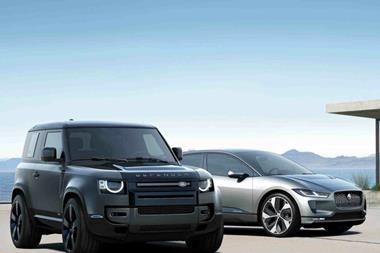
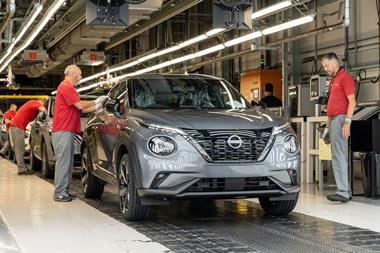
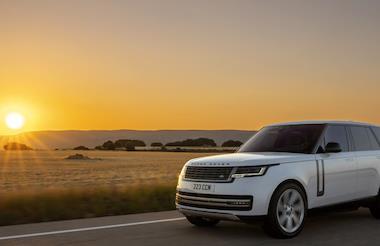
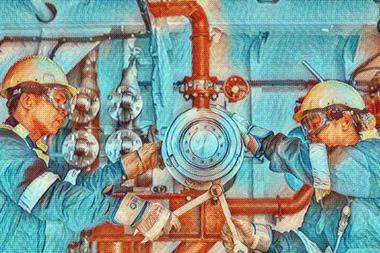

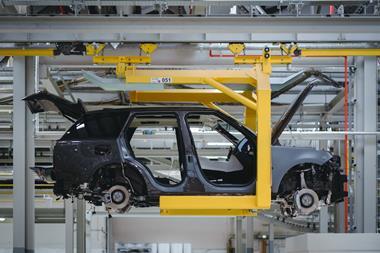



No comments yet